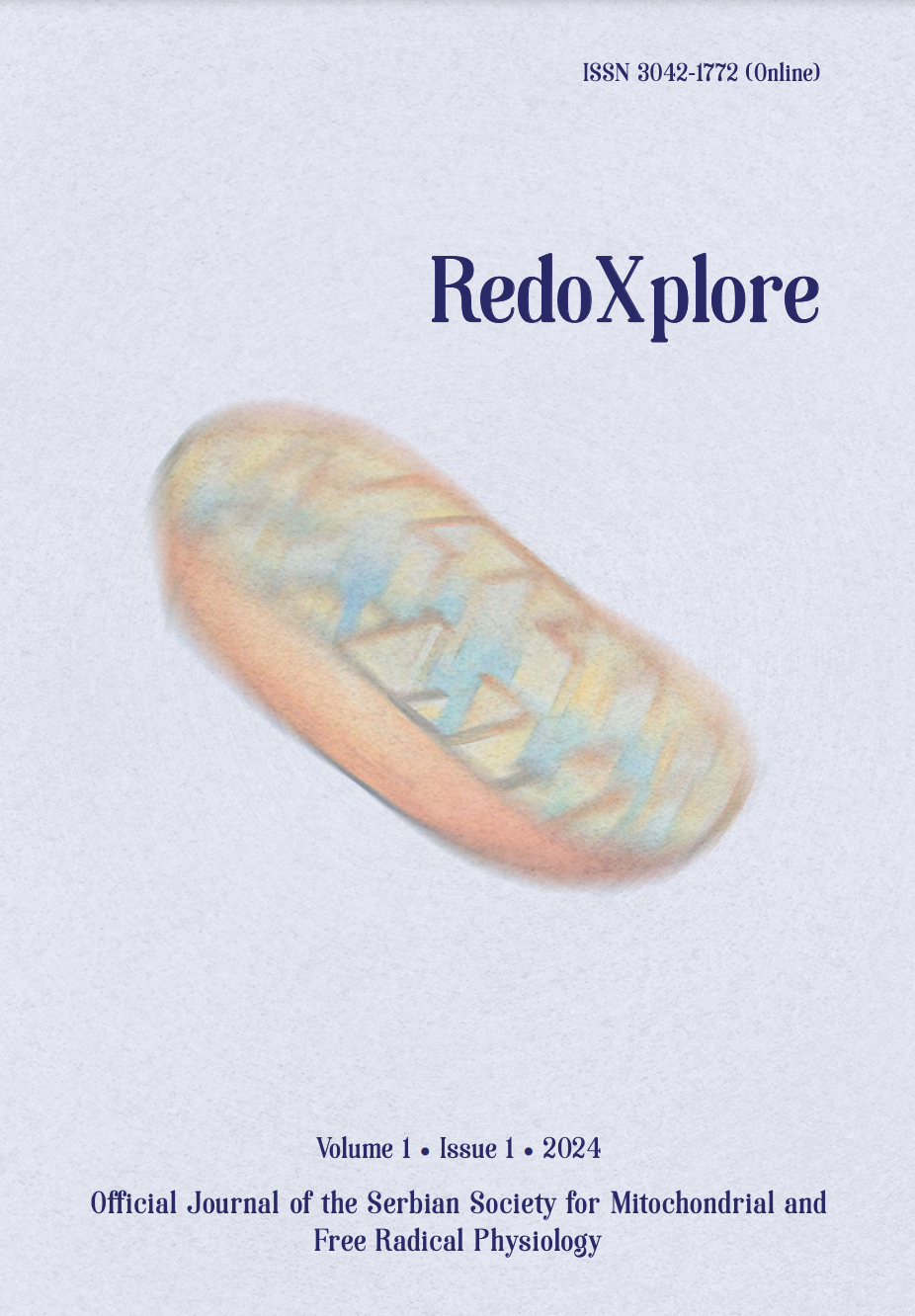
More articles from Volume 1, Issue 1, 2024
REDOX AND METABOLIC REPROGRAMMING OF BREAST CANCER CELLS AND ASSOCIATED ADIPOSE TISSUE - THE CORNERSTONES OF ADAPTIVE TUMOUR BEHAVIOUR
INSULIN MODULATES MITOCHONDRIAL STRUCTURAL AND FUNCTIONAL MOSAICISM IN BROWN ADIPOCYTES
NITRITE MITIGATES OXIDATIVE BURST IN ISCHEMIA/REPERFUSION IN BRAIN SLICES
NITRIC OXIDE, SUPEROXIDE AND PEROXYNITRITE – REDOX REGULATION OF THE CARDIOVASCULAR SYSTEM BY NITRO-OXIDATIVE STRESS AND S-NITROS(YL)ATION
DIETARY NITRATE AS PIVOT ON THE GUT MICROBIOTA-HOST REDOX COMMUNICATION
Citations

0
OXYSTEROLS: FROM MOLECULAR BIOLOGY TO MEDICINE AND INDUSTRY
Department of Clinical and Biological Sciences, University of Turin , Turin , Italy
Editor: Bato Korac
Published: 29.08.2024.
Plenary lectures
Volume 1, Issue 1 (2024)
Abstract
Oxysterols are oxidized derivatives of cholesterol initially considered as simple metabolic byproducts, nowadays recognized to play significant roles in various biological and pathological processes. In physiology, they are involved in the regulation of cellular processes beyond cholesterol metabolism, influencing cell proliferation, differentiation, apoptosis, and inflammation through various signaling pathways. In medicine, the study of oxysterols holds promise for understanding and treating various diseases, particularly those associated with dysregulated cholesterol metabolism and inflammation. Indeed, some oxysterols have been associated with adverse health effects, including cytotoxicity, pro-inflammatory effects, and potential contributions to the development of chronic diseases. Dysfunctions in oxysterol metabolism have been implicated in the pathogenesis of cardiovascular diseases, neurodegenerative disorders, and certain cancers. Targeting oxysterol pathways could therefore offer novel therapeutic strategies for these conditions. Oxysterols have potential applications in the pharmaceutical and biotechnology industries. Those generated by cholesterol autoxidation can be used as biomarkers for assessing oxidative stress conditions. Additionally, defined oxysterols of enzymatic origin and/or synthetic oxysterol analogs might be developed as antiviral agents. Oxysterols generated through autoxidation processes can serve as markers of lipid oxidation in cholesterol-containing foods and their quantification can help assess the quality and shelf life of food products, and also for ensuring food safety and consumer health. Finally, with regard to skin health and cosmetics industry, prolonged or excessive exposure to and/or formation of certain toxic oxysterols could potentially damage skin cells and disrupt skin barrier function. Therefore, careful formulation and dosage control are essential to ensure the safety of skincare products. Overall, the study of oxysterols spans molecular biology, medicine, and industry, with implications for understanding fundamental biological processes, developing new medical, industrial, and advancing biotechnological applications.
Citation
Copyright

This work is licensed under a Creative Commons Attribution-NonCommercial-ShareAlike 4.0 International License.
Article metrics
The statements, opinions and data contained in the journal are solely those of the individual authors and contributors and not of the publisher and the editor(s). We stay neutral with regard to jurisdictional claims in published maps and institutional affiliations.






